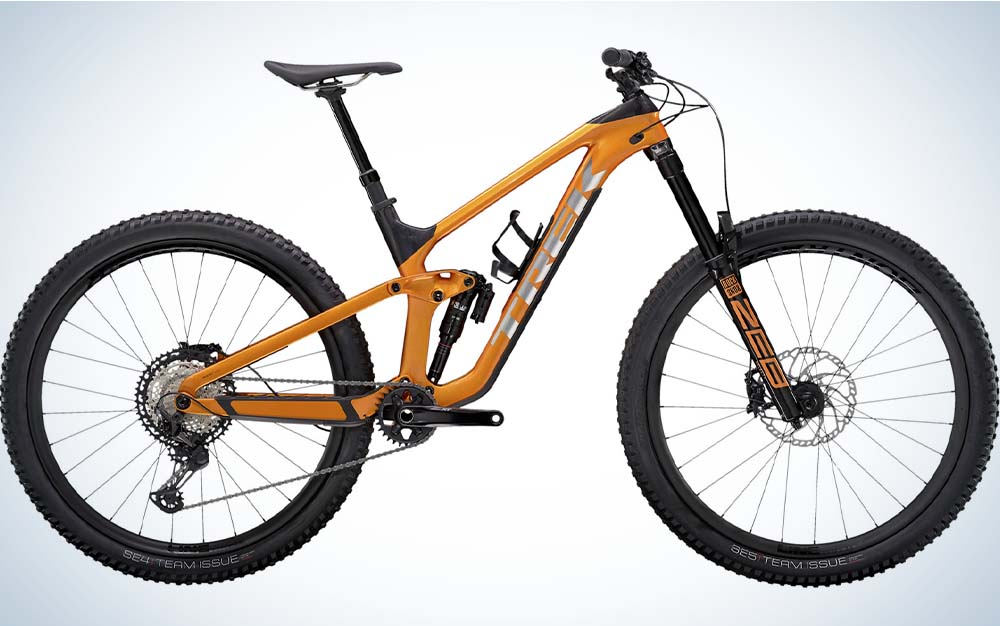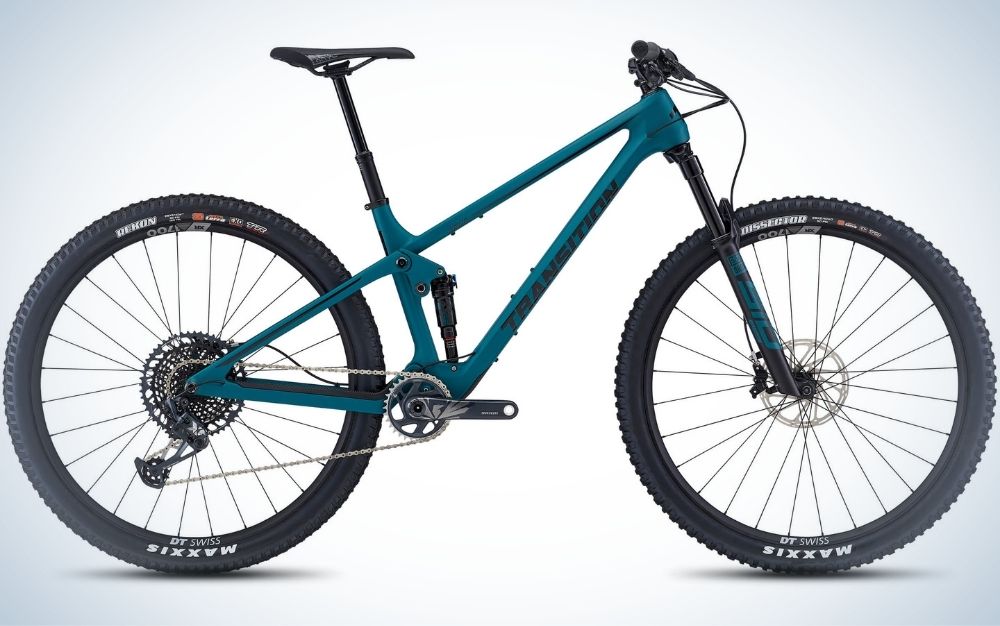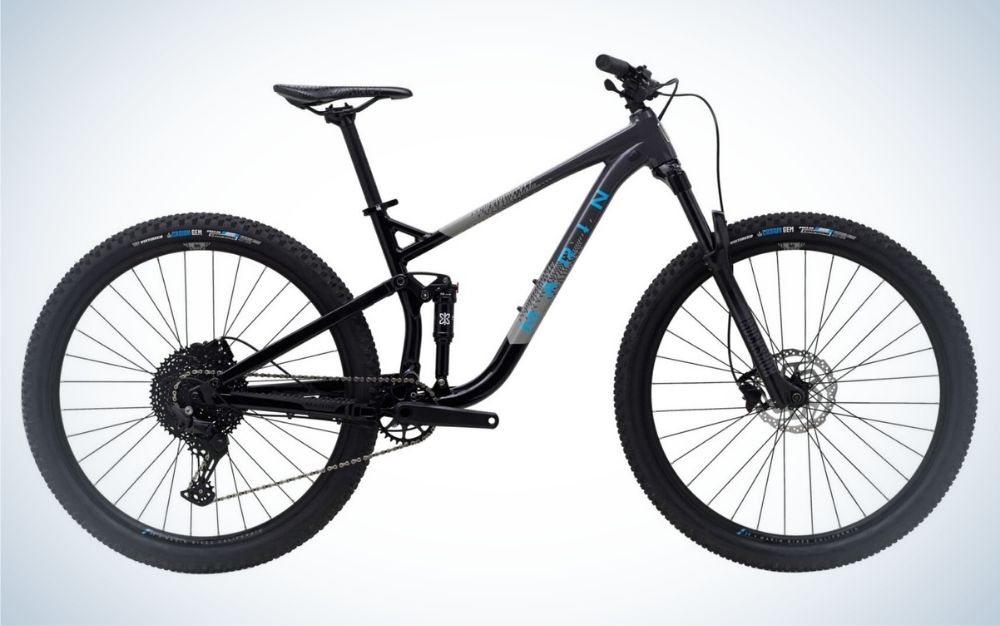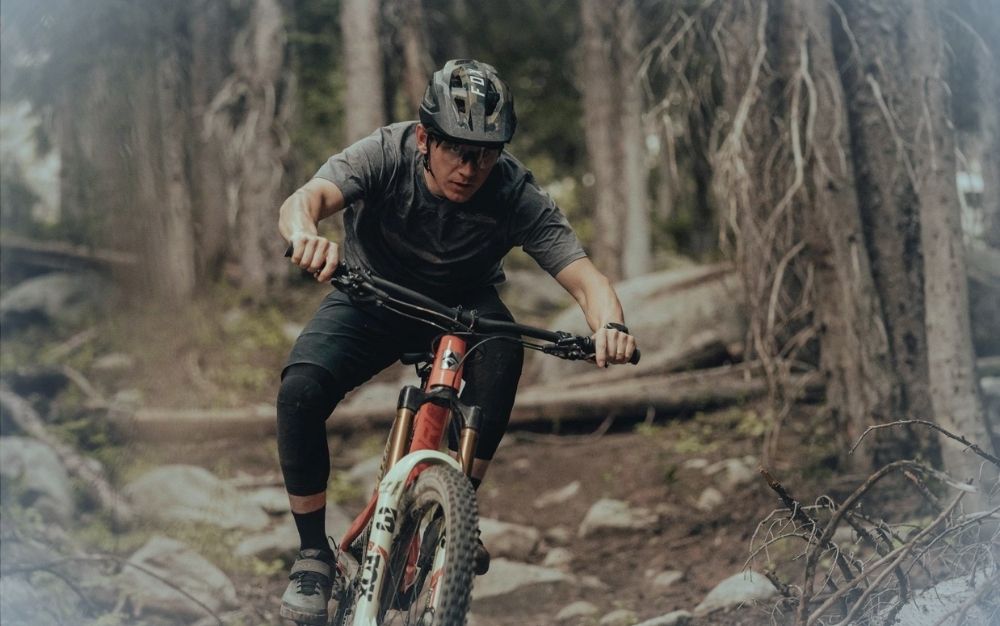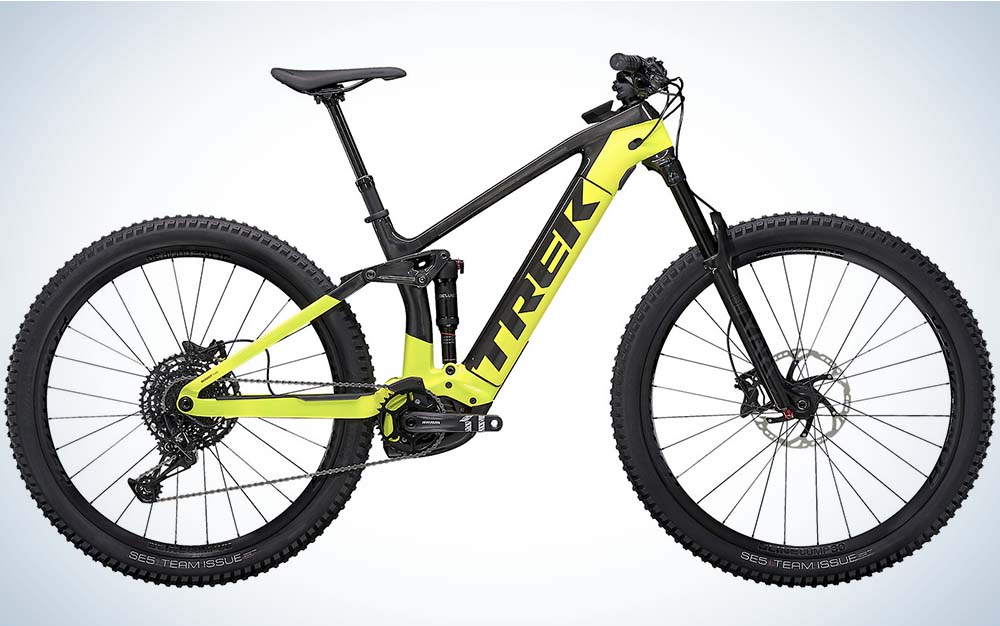Best Mountain Bikes for 2022
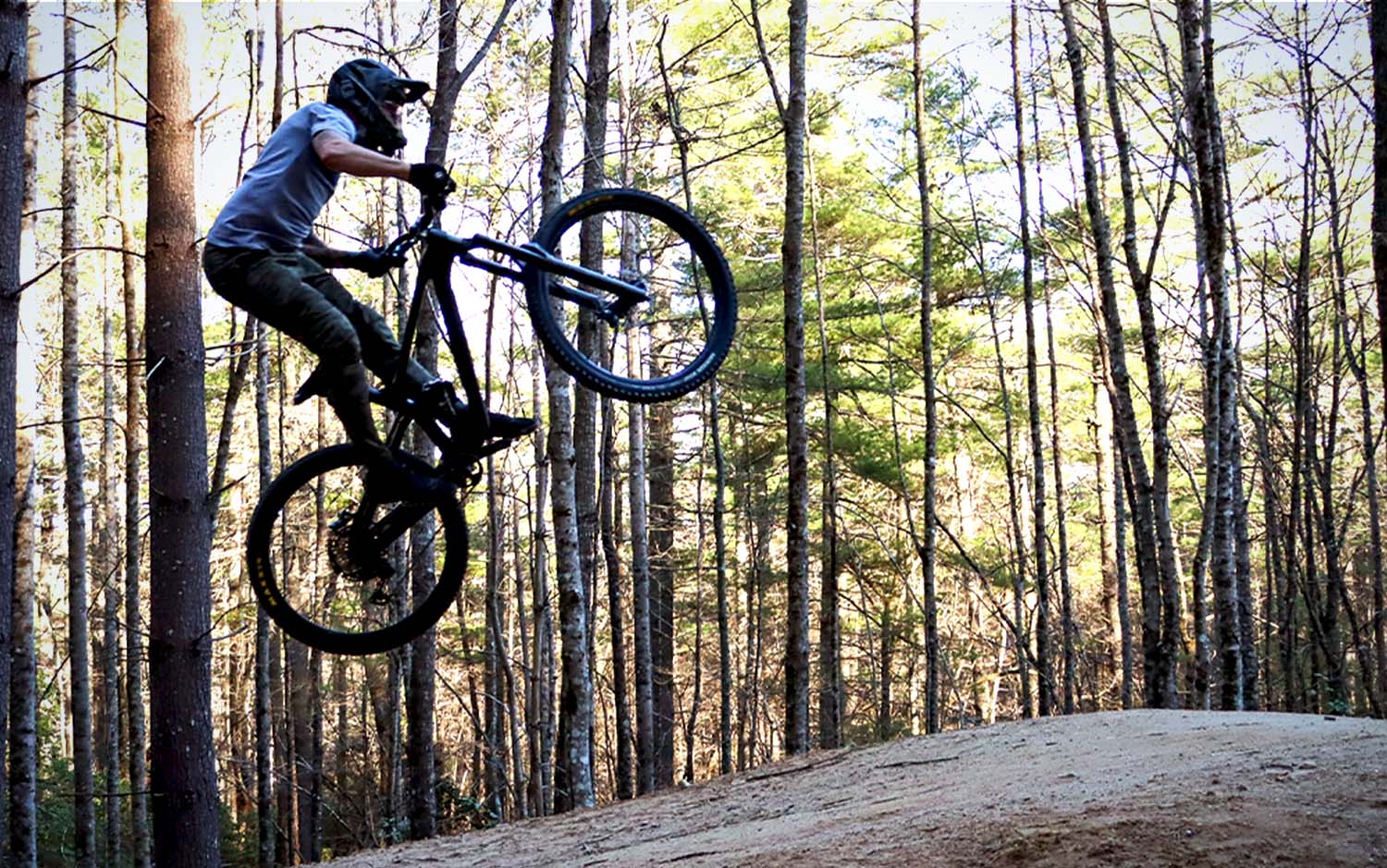
When I bought my first mountain bike, I saved up dollar after dollar in a shoebox under my bed until I had enough to buy the perfect hardtail. It was a 26-inch crimson-red Iron Mountain Maverick with an aluminum frame, SunTour XCT fork, and mechanical disk brakes. I did the research, tested it at my local bike shop, and took it home that day. Since then, and several mountain bikes later, I’ve seen mountain bikes change as companies have designed smarter geometries and upgraded parts for smoother and more enjoyable riding. For this review, I tested the best mountain bikes to help you hit the trails or, like me, have a memorable first-bike experience that turns into an addiction.
Things to Consider Before Buying a Mountain Bike
There are multiple factors to consider when buying a mountain bike, like where you’ll be riding most, the type of terrain, and the level of climbing and descending you’ll encounter. You’ll also want to consider if you want to feel every little bump on the trail or have a more forgiving set up. Thankfully, the best mountain bikes on this list cover a wide range of scenarios, no matter your preferences.
Full-Suspension
Also called full squish bikes, full-suspension bikes offer rear suspension to provide more stability and control in bumps and on steep, rocky terrain. Full-suspension bikes are often more forgiving and confidence-inspiring for beginners. I usually reach for full-suspension, every chance I get.
Hardtail
These bikes do not feature a rear shock and are ideal for first-time riders or for those who prefer smooth trails. They’re typically lightweight, great for climbing, require less maintenance and are cheaper than full-suspension bikes. However, they’re not as comfortable as full-suspension bikes on rough and rocky terrain.
Long Travel
Put simply, travel is the maximum distance that the front or rear suspension on a mountain bike can compress before bottoming out. Long travel bikes feature anywhere from 150mm to 180mm of travel or 6-7 inches. These types of bikes are perfect for aggressive riders that like to drop, jump, and go fast through rocky terrain. Long travel bikes usually do better descending down a trail than climbing one.
Short Travel
Compared to long travel bikes, short travel bikes feature less suspension. They typically have anywhere from 110mm to 140mm or 4-5 inches of travel. These bikes are ideal for riders that want a bike that climbs hills more efficiently, weighs less, and is generally more responsive.
Electric Mountain Bikes
Go further and longer with an e-bike. E-bikes feature an integrated motor that provides pedal-assist technology so that riders can climb hills easier and enjoy the sport more. They’re also very stable on downhills and make it easier to gain more overall trail mileage.
Performance vs. Price Point
This is the question that plagues every mountain biker. High-performance mountain bikes, especially e-bikes can cost a lot, but sometimes it’s worth it. You’ll have to decide which features and components are most important to you and whether you’re willing to spend extra depending on your style of riding and personal preferences.
Key Features
- New slacker geometry perfect for descending
- Full OCLV mountain carbon frame comes with built-in storage
- Shimano XT brakes
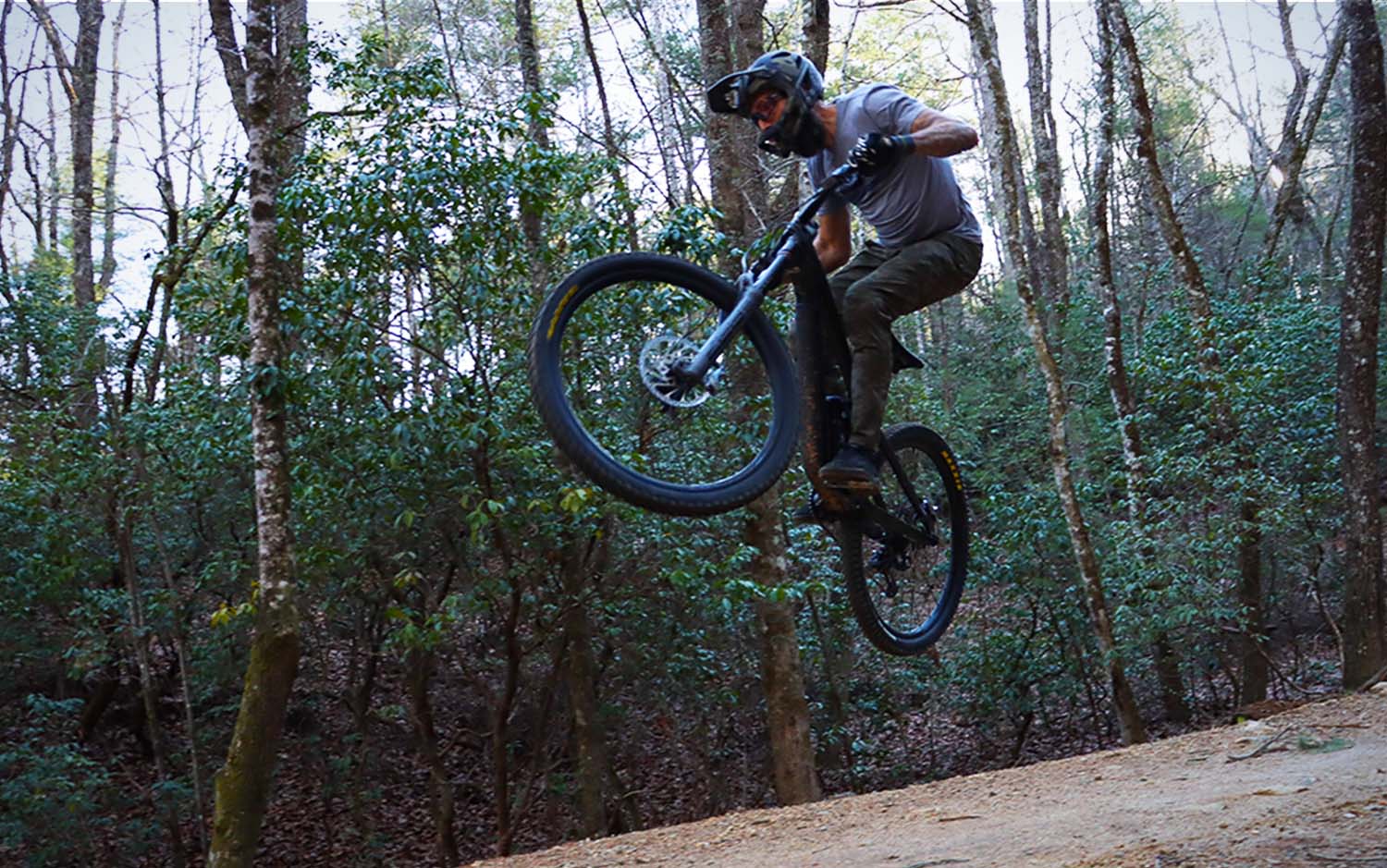
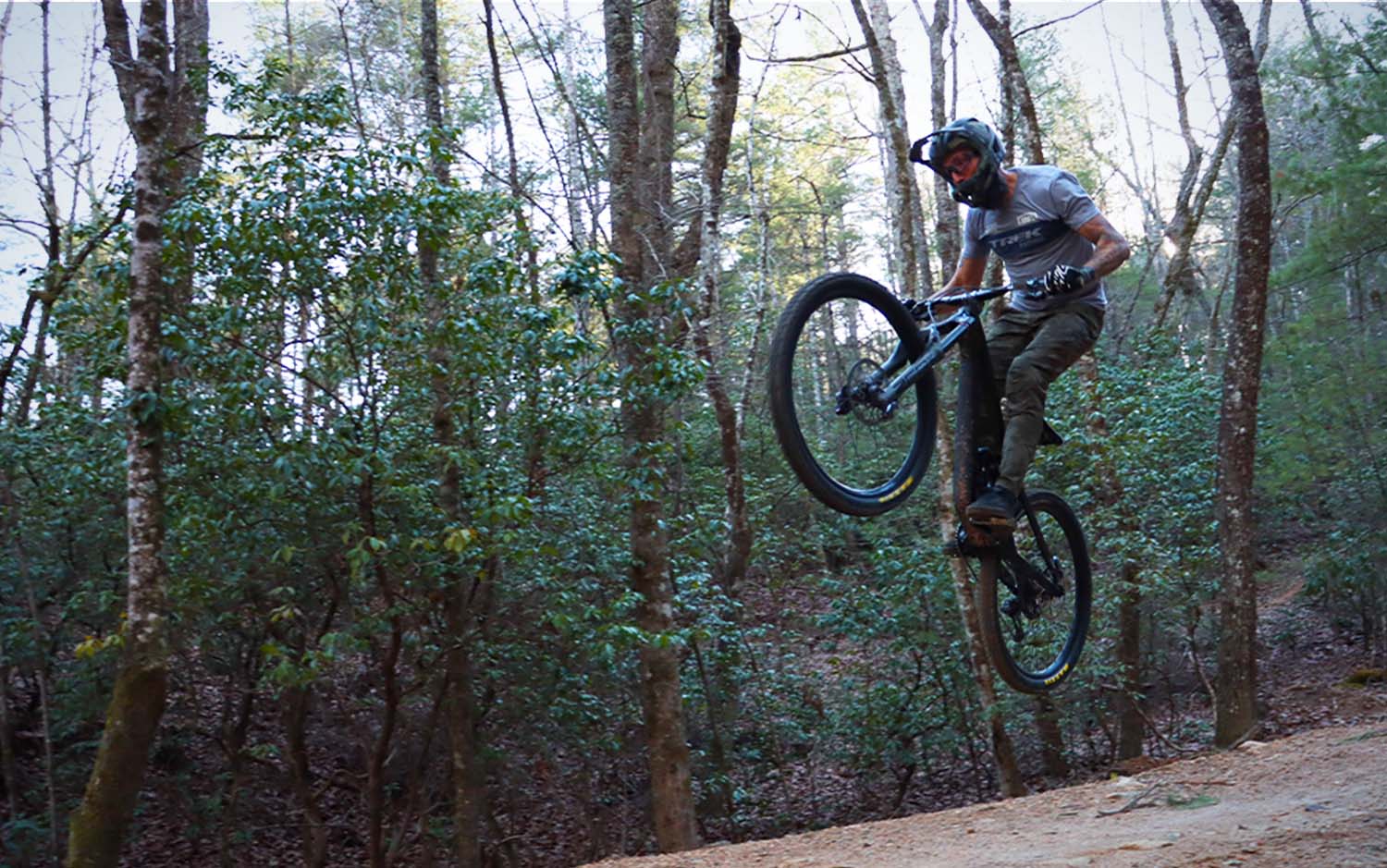
Why It Made the Cut
Big, burly, beastly, the new Slash rolls on 29-inch wheels with 170mm travel up front and 160mm at the rear. It’s the perfect choice for big days on the mountain.
Pros
- RockShox Zeb Fork eats up anything in its path
- Shimano XT 12-speed drivetrain offers super-smooth shifting
- Lightweight, durable wheels
Cons
Product Description
Over the years, I’ve tried many long-travel mountain bikes and I always come back to the same question, will it be fearless? A long-travel mountain bike should show no fear. What I mean is, it should plow through roots, rocks, and steep terrain with ease. The Trek Slash 9.8 XT does all of that. Point it down the mountain and it’s ready to take on anything. This 29er is a burly beast that likes to go fast and eat up anything in its path.
Key Features
- Proprietary GiddyUp suspension system
- Weight: 24.7 pounds
- 12-speed X01 Eagle drivetrain
- Internal cable routing
Why It Made the Cut
The Spur excels anywhere you point it. This bike is super sprightly on climbs and lightning fast on descents. You can also perfectly tune its unique suspension design to your riding style.
Pros
- Responsive, lightweight
- Smooth shifting
- Aggressive geometry
- Spacious front triangle
Cons
- Other climbers might be stronger
Product Description
Many short-travel bikes come up short in the descending department. They can climb well but when it comes to riding downhill they are too cautious and unstable. The Transition Spur is an all-country bike that climbs well and descends well too. It’s a true unicorn in its category. This bike makes climbing easy and rewards riders by maintaining its speed and stability. If I were to ride cross country trails in the East, Midwest, and West and needed one bike, this would be it.
Key Features
- RockShox Recon Fork
- Tuneable X-Fusion O2 Pro R rear shock
- Shimano Deore 1×10
Why It Made the Cut
For the price, this 29” full-suspension mountain bike can’t be beat. I had the chance to test it out in the relentless Southern Utah terrain and was surprised at how comfortable and stable it performed on many trail types.
Pros
- Updated geometry for descents
- Solid drivetrain components make shifting smooth
- Durable, aluminum double-wall rims
- Clean internal cable routing
Cons
- Aluminum frame is heavier than carbon
- Frame doesn’t include a dropper post
Product Description
Finding a full-suspension mountain bike that doesn’t break the bank is difficult. If you’re just getting into the sport on a budget, the Marin Rift Zone 1 is an excellent choice. I’ve personally been on this bike many times and was impressed by how much it did. The bike feels comfortable and stable on various terrain types and includes some premium components for the low price tag. While it may not be perfect for expert riders, this bike is a great choice for the money.
Key Features
- SRAM SX Eagle 12 Speed drivetrain
- WTB STP i25 29er wheels are tubeless ready
- Weight: 28.5 pounds
Why It Made the Cut
If a hardtail is your cocktail, this mountain bike should be your top choice. For under $1,000, this 29-inch mountain bike features a high-end drivetrain, lightweight build, and its frame comes with a lifetime warranty. It’s an excellent choice for the price.
Pros
- Lighter than most hardtails
- Balanced geometry is efficient for climbing
- Comes with a 30-Day risk-free riding trial
Cons
- Only Available in two colorways
Product Description
Over the years, the Wasatch Peak has received awards for its value, and it’s easy to see why. It comes fully kitted with a top-of-the-line SRAM 12-speed drivetrain, SR Suntour XCR 34 fork, lightweight frame, and tubeless-ready 29-inch wheels. The company also has a 30-day trial period to try the bike and a lifetime warranty on the frame. All of those benefits for under $1,000 are hard to beat.
Key Features
- RockShox ZEB fork
- SRAM GX Eagle 1×12 drivetrain
- Bosch CX motor
Why It Made the Cut
This 29-inch e-bike is a blast to ride. It’s fast, stable, and you can take it anywhere. The Rail 9.7 is easy to charge, and the powerful Bosch motor is ahead of its class.
Pros
- Powerful motor makes climbing easy
- Easy-to-read speed controls and display unit
- Super stable at high speeds
- Smooth, simple shifting
Cons
Product Description
I’ve been on this e-bike a few times and every time I get back on it, a huge smile comes over my face. The Trek Rail 9.7 is just fun. Plain and simple. It can zip up climbs, fly down drops, and hit jumps like a champ. It’s stable at high speeds and great for riders who don’t want to do all the work. Simply charge this bike for 2-3 hours and you’ll be ready for a full day of riding.
FAQs
Q: How much do mountain bikes cost?
Mountain bikes vary greatly in cost. You’ll spend more money on parts that are lighter, more durable, and more efficient. For example, full-suspension mountain bikes and e-bikes with carbon frames and high-end components can fall into the $4,000-$10,000 range. While full-suspension mountain bikes with aluminum frames and lower-end components usually run in the $2,000-$5,000 range. Hardtails usually only feature a front fork and can range from $500-$3,000. Expect to spend a fair amount if you become invested in the sport.
Q: Is a full-suspension mountain bike worth it?
A full-suspension mountain bike is worth the extra money if you want to feel less of the harshness of the trail and want a bike you can grow with. A hardtail is great for those that like cross-country riding on more mild, less rocky terrain. If you’re looking for a bike that can be used on difficult terrain or does better on jumps and drops, a full-suspension mountain bike is the way to go. If you want to play it safe and don’t mind feeling more of the bumps, a hardtail may be a better choice.
Q: What is a good mid-range mountain bike?
A good mid-range mountain bike will be versatile and perform well at a decent price. The Marin Rift Zone 1 and Transition Spur are both great mid-range mountain bikes with 120mm of travel for all-around performance. While they skew more on the cross-countryside, they perform great on many types of trails.
Q: Which mountain bike is best for beginners?
The best mountain bike for beginners is an affordable hardtail with front suspension like the Fezzari Wasatch Peak Comp 29, or a lower-budget full-suspension mountain bike like the Marin Rift Zone 1. Both of these mountain bikes won’t break the bank and are great choices for those initially getting into the sport. If you’re looking to spend more money but want a mountain bike that can help you pedal uphill easier, an e-bike might also be worth considering.
Methodology
I am an avid mountain biker with 20 years of riding experience. I’ve tested dozens of mountain bikes from many major brands including Trek, Specialized, Devinci, Santa Cruz, Rocky Mountain, Marin, Fezzari, and more. I have personally tested many of the bikes featured in this article and believe they are some of the strongest contenders on the market right now. For this review, I tested these bikes on rocky and flow trails in both Utah and Arkansas, and considered features such as overall mountain bike performance, weight, geometries, components, and comfort. The picks above have gone through drops, jumps, and plenty of dirt to provide the very best insights.
Final Thoughts
I don’t know your budget, your riding style or what components you want most. I do know that buying the best mountain bike is an investment that’s well worth it. The mountain bikes featured above are solid options for a variety of riders. Consider your goals and riding style as you find one that best fits you and go shred the trails.

